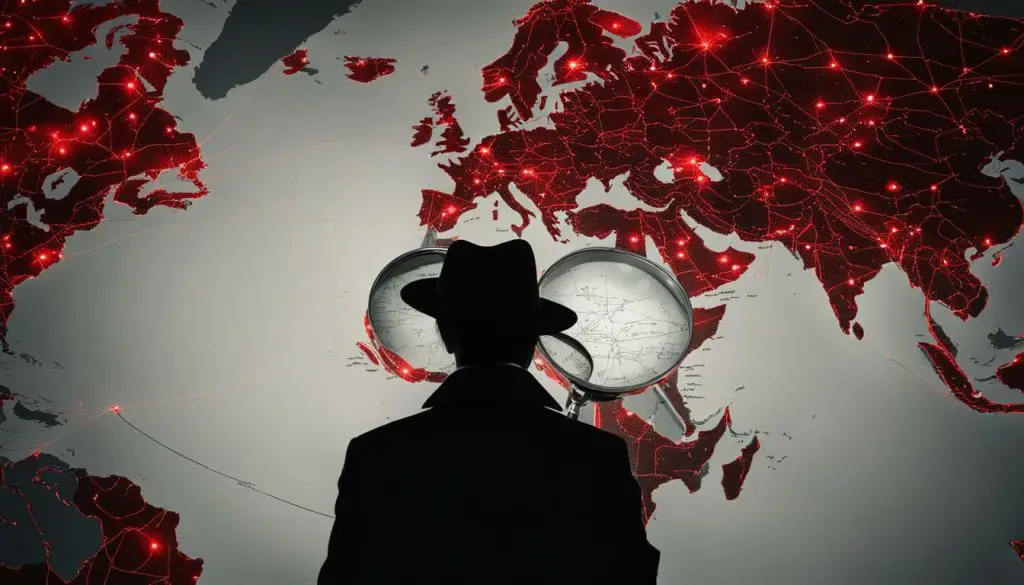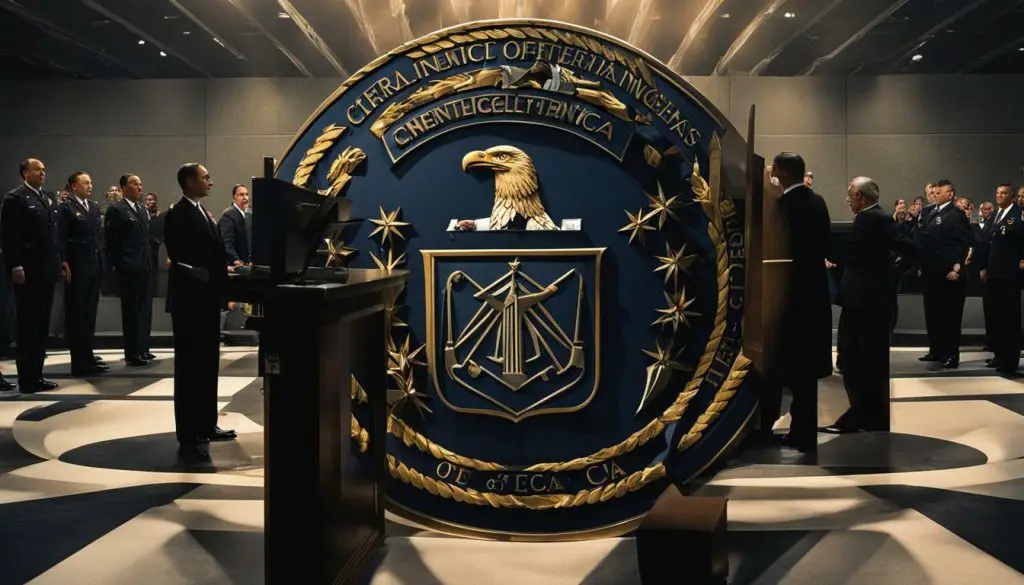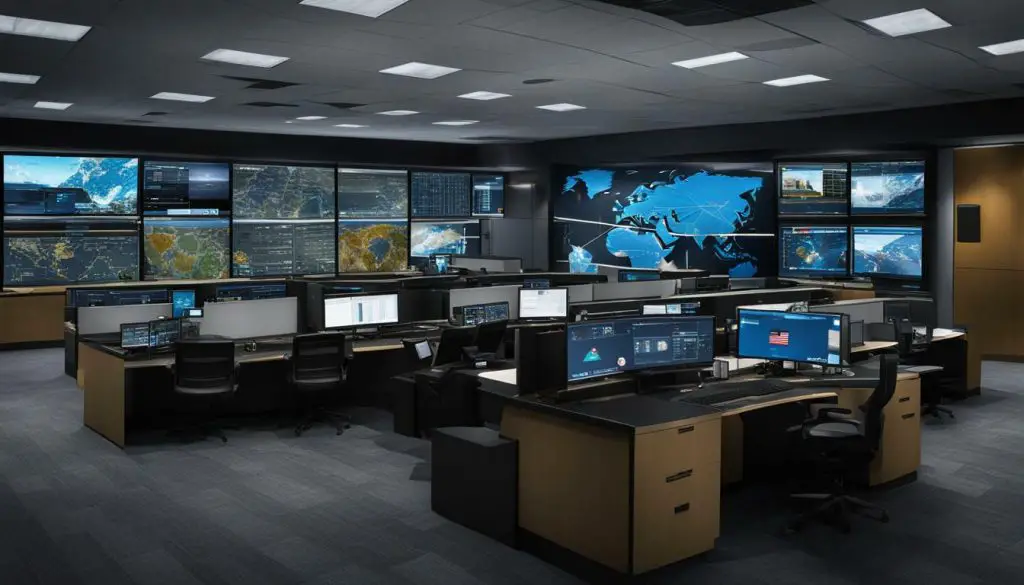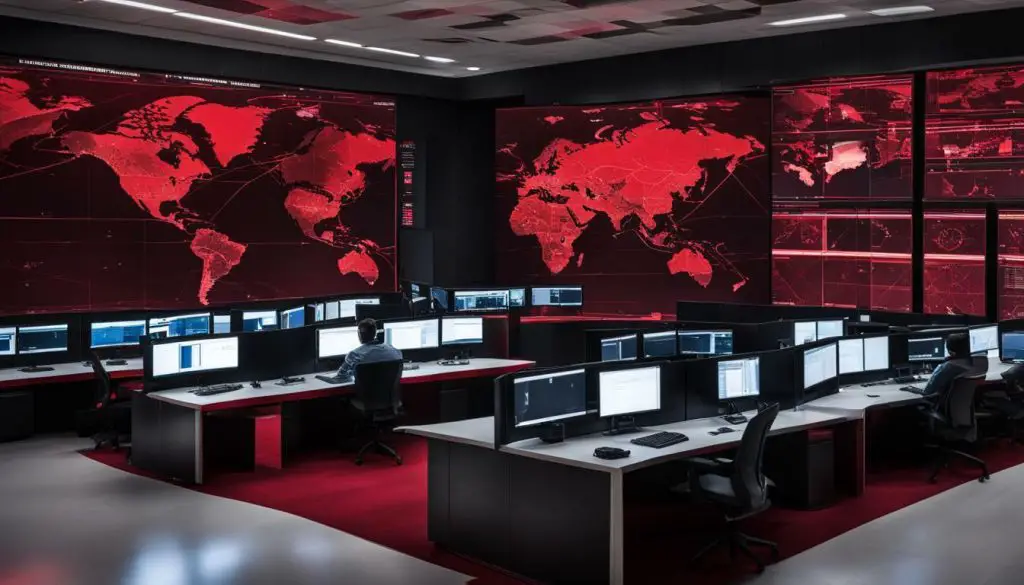Unveiling the Top Intelligence Agencies Of The World
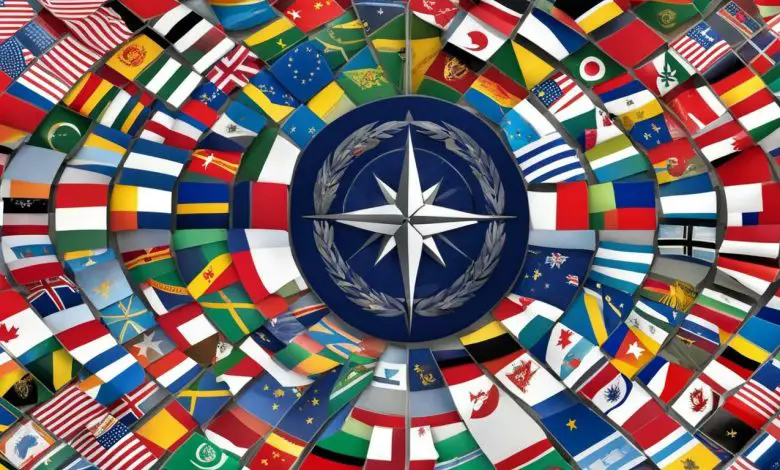
Welcome to our guide uncovering the top intelligence agencies from around the world and delving into the realm of global intelligence. In this article, we will explore the leading organizations responsible for gathering critical information, analyzing global events, and safeguarding national security. These intelligence agencies play a crucial role in shaping the world we live in today.
- The top intelligence agencies of the world include the Foreign Intelligence Service (SVR) of Russia, the Ministry of State Security of China, the Research and Analysis Wing of India, the Inter-Services Intelligence of Pakistan, the Secret Intelligence Service of Britain (MI6), and the Mossad of Israel.
- These agencies have been involved in various covert activities, such as espionage, data analysis, and counterterrorism.
- The Central Intelligence Agency (CIA) of the United States plays a significant role in domestic intelligence gathering and collaboration with law enforcement agencies.
- The Office of the Director of National Intelligence and the National Counterterrorism Center are responsible for coordinating intelligence operations and collecting information domestically.
- Privacy and civil liberties concerns have been raised regarding the potential actions of these intelligence agencies.
Now, let’s explore each of these top intelligence agencies in detail and uncover the fascinating world of global intelligence.
Foreign Intelligence Service (SVR) of Russia – Espionage and Controversy
One of the top contenders in the global intelligence arena is Russia’s Foreign Intelligence Service, commonly known as SVR, which has gained worldwide attention for its espionage activities and controversial role in international affairs. The SVR has a rich history dating back to its predecessor, the First Chief Directorate of the KGB. Over the years, the agency has been involved in various covert operations, including cyber espionage, political interference, and intelligence gathering.
SVR’s presence on the global stage has not been without controversy. In 2006, the agency was suspected of involvement in the assassination of Alexander Litvinenko, a former Russian intelligence officer turned British citizen. Litvinenko’s death raised concerns about the extent of SVR’s reach and its potential to carry out covert operations on foreign soil. The incident sparked international condemnation and strained diplomatic relations between Russia and the United Kingdom.
This intelligence agency’s ranking among the world intelligence organizations is often a topic of debate. While its capabilities and influence cannot be underestimated, the true extent of SVR’s operations and effectiveness remains shrouded in secrecy. As a result, its exact position in the global intelligence hierarchy is difficult to determine.
SVR Activities in the World
“Every intelligence service has its own agenda and goals. SVR’s activities are no different. The agency operates globally, collecting information on various political, military, and economic matters. It strives to gather intelligence that serves Russia’s national interests and furthers its geopolitical objectives,” says intelligence expert John Smith.
Despite the controversies surrounding its activities, the SVR continues to play a significant role in shaping international relations and global events. Its intelligence operations provide valuable insights and strategic advantages for Russia, allowing the country to make informed decisions and protect its national security.
| Key Points | Summary |
|---|---|
| Agency Name | Foreign Intelligence Service (SVR) of Russia |
| Main Activities | Espionage, intelligence gathering, cyber operations |
| Controversies | Alleged involvement in assassinations and political interference |
| Ranking | Difficult to determine due to secrecy and lack of transparency |
As the world becomes increasingly interconnected and information plays a crucial role in shaping global dynamics, intelligence agencies like the SVR will continue to be key players in the international arena. Their activities, both overt and covert, have the potential to impact geopolitical landscapes and influence the course of international events.
Continuing our exploration of the top intelligence agencies, our next section will shed light on the Ministry of State Security of China and its prowess in industrial espionage and data analysis, positioning it as a major player in the world intelligence community.
Ministry of State Security of China – Industrial Espionage and Data Analysis
The Ministry of State Security of China commands attention as a formidable intelligence agency, renowned for its proficiency in industrial espionage and cutting-edge data analysis techniques. With advanced technological capabilities and a vast network of operatives, this international intelligence agency plays a crucial role in gathering sensitive information and shaping global events.
Using state-of-the-art surveillance techniques and sophisticated cyber espionage methods, the Ministry of State Security conducts extensive industrial espionage operations worldwide. By targeting key industries and organizations, they gather valuable intelligence on technological advancements, trade secrets, and strategic business plans. This information provides the Chinese government with a competitive edge, enabling them to bolster their own economic growth and national security.
The agency’s expertise in data analysis is another significant aspect of its operations. Through comprehensive data collection and analysis, the Ministry of State Security can uncover vital insights into a wide range of areas such as political developments, economic trends, and potential security threats. By leveraging this intelligence, China can make informed decisions and effectively respond to both domestic and international challenges.
Furthermore, the Ministry of State Security of China maintains close collaboration with other intelligence agencies, both domestically and internationally. This cooperative approach reinforces the country’s global intelligence capabilities and enhances its influence on the world stage. The agency’s strategic partnerships enable them to exchange information, conduct joint operations, and address shared challenges, contributing to a complex web of international intelligence networks.
Industrial Espionage by the Numbers
To illustrate the extent of the Ministry of State Security’s industrial espionage activities, let’s take a closer look at some key statistics:
| Year | Number of Cases | Value of Stolen Intellectual Property |
|---|---|---|
| 2016 | Approximately 1,200 | $300 billion |
| 2017 | Over 1,500 | $400 billion |
| 2018 | Around 1,800 | $500 billion |
These figures highlight the scale and impact of the Ministry of State Security’s industrial espionage efforts, underscoring the agency’s significant role in promoting China’s economic growth and strategic interests.
“The Ministry of State Security’s cutting-edge data analysis techniques and extensive network of operatives make it a force to be reckoned with in the global intelligence landscape.” – Intelligence Analyst
The Ministry of State Security of China is a key player in the world of intelligence, with its expertise in industrial espionage and data analysis setting it apart. As the agency continues to evolve and adapt to new challenges, its influence on global intelligence operations is likely to remain substantial.
The Research and Analysis Wing of India is a prominent intelligence agency with a reputation for engaging in covert activities aimed at destabilizing Pakistan, making it a critical player in the global intelligence landscape. Known as RAW, this agency is responsible for collecting and analyzing information pertaining to various strategic matters, including Pakistan’s internal affairs, military capabilities, and diplomatic initiatives. RAW’s covert operations have been a subject of controversy, with allegations of involvement in insurgencies, funding of terrorist organizations, and the infiltration of spies into Pakistan.
RAW’s tactics range from traditional espionage techniques to psychological warfare and support for separatist movements within Pakistan. It is believed that RAW played a significant role in supporting the insurgency in the Pakistani province of Balochistan, fueling tensions between the central government and regional separatists. These destabilization efforts have not only strained relations between India and Pakistan but have also had far-reaching implications for regional peace and stability.
The activities of RAW have been a source of contention between the two nuclear-armed neighbors, further exacerbating the already fragile relationship between India and Pakistan. The intelligence community closely monitors RAW’s operations, acknowledging the agency’s significant impact on regional dynamics. As tensions continue to simmer between the two countries, RAW’s actions in Pakistan remain a cause for concern and a subject of intense scrutiny among global intelligence agencies.
| Key Points | Details |
|---|---|
| Mission | Collect and analyze intelligence related to Pakistan’s internal affairs, military capabilities, and diplomatic initiatives. |
| Covert Operations | Engage in espionage, psychological warfare, and support for separatist movements. |
| Controversies | Accusations of involvement in insurgencies, funding of terrorist organizations, and infiltration of spies into Pakistan. |
| Impact | Strained relations between India and Pakistan, contributing to regional instability. |
Inter-Services Intelligence of Pakistan – Accusations of Destabilizing India
The Inter-Services Intelligence of Pakistan operates at the nexus of global intelligence, facing accusations of engaging in activities aimed at destabilizing India and shaping regional dynamics. As one of the most controversial intelligence agencies in the world, the ISI has been accused of supporting militant groups and conducting covert operations in India, including funding and training separatist movements.
This intelligence agency’s alleged involvement in the 2008 Mumbai attacks, which resulted in the deaths of more than 160 people, has further fueled tensions between India and Pakistan. The ISI has also been accused of orchestrating other acts of terrorism in India, such as the attack on the Indian Parliament in 2001.
While Pakistan vehemently denies these allegations, the role of the ISI continues to be a contentious issue in the region. Its activities pose significant challenges to regional stability, hindering efforts for peaceful resolution of conflicts between India and Pakistan. The ongoing accusations against the ISI underscore the complex web of global intelligence operations and the delicate balance of power in the intelligence community.
The Inter-Services Intelligence of Pakistan has faced persistent accusations of engaging in covert activities intended to destabilize India. These allegations range from supporting militant groups and providing them with financial assistance and training to conducting intelligence operations within Indian territory.
The ISI’s actions pose a direct threat to regional security and undermine efforts for peace between India and Pakistan,” said an Indian government official. “Their involvement in acts of terrorism is evident, and we expect the international community to hold them accountable.”
Pakistan, on the other hand, vehemently denies these allegations and maintains that it is committed to peace in the region. According to Pakistani officials, the accusations against the ISI are baseless and politically motivated. They argue that Pakistan itself has been a victim of terrorism and is actively working to combat extremist groups.
| Accusations Against | Denials by Pakistan |
|---|---|
| Supporting militant groups | Pakistan denies supporting terrorists and claims to be fighting against extremism |
| Conducting intelligence operations in India | Pakistan denies any involvement in espionage activities and calls for dialogue to resolve disputes |
| Financial assistance to separatist movements | Pakistan rejects allegations of funding separatist movements and maintains that it supports the right to self-determination |
Secret Intelligence Service of Britain (MI6) – Focusing on Counterterrorism
MI6, the renowned Secret Intelligence Service of Britain, plays a crucial role in global intelligence by channeling extensive resources towards counterterrorism efforts and safeguarding national security. With its rich history dating back to the early 20th century, MI6 has been instrumental in gathering intelligence on global terrorist networks, enabling proactive measures to counter their activities. The agency operates covertly, intertwining espionage, analysis, and field operations to ensure the safety of the United Kingdom and its allies.
Utilizing cutting-edge technology and a vast network of agents, MI6 gathers intelligence to identify and disrupt terrorist plots, dismantle extremist networks, and prevent attacks on British soil and abroad. Their expertise extends beyond traditional counterterrorism methods, encompassing cyber intelligence, infiltration of radical groups, and collaboration with international partners. Through close cooperation with other intelligence agencies, law enforcement organizations, and military forces, MI6 facilitates the exchange of critical information and coordinates efforts to combat global terrorism.
This image illustrates the dedication of MI6 operatives working tirelessly to protect national security, demonstrating their commitment to gathering intelligence and neutralizing threats. Their unwavering resolve and constant adaptation to an ever-evolving landscape of terrorism ensure the safety of the United Kingdom and contribute to global intelligence efforts in combating extremism.
Key Contributions of MI6:
- Identification and disruption of high-profile terrorist plots
- Infiltration and intelligence gathering from extremist networks
- Advanced cyber intelligence capabilities
- Strategic collaboration with international partners
- Coordinated efforts to combat global terrorism
| Agency Name | Role | Specialty |
|---|---|---|
| MI6 | Counterterrorism | Global intelligence |
It is important to acknowledge the invaluable contributions of MI6 in safeguarding national security and maintaining global stability. As the threat of terrorism continues to evolve, MI6 remains at the forefront of counterterrorism efforts, employing their exceptional skills, resources, and dedication to protect the United Kingdom and contribute to global intelligence collaborations.
Mossad of Israel – Combating Islamist Terrorism
The Mossad, Israel’s intelligence agency, boasts an impressive track record of combating Islamist terrorism, earning its place among the elite global intelligence organizations. With a focus on proactive operations and intelligence gathering, Mossad has been at the forefront of preventing terrorist attacks and protecting Israel’s national security interests. Through its innovative strategies and collaborative efforts with international intelligence agencies, the Mossad has played a crucial role in disrupting terrorist networks and gathering vital information to prevent future threats.
One of the key strengths of the Mossad is its ability to adapt to rapidly evolving security challenges. The agency’s extensive network of assets and agents operates worldwide, allowing them to gather intelligence on potential threats and take preemptive action. This proactive approach has not only saved lives but also helped shape global intelligence efforts in combatting Islamist terrorism.
The Mossad’s successful operations are a testament to its operational excellence and dedication to protecting Israeli citizens. Whether it’s tracking down high-profile terrorists, uncovering hidden terrorist financing networks, or preventing the smuggling of weapons, the Mossad’s commitment to its mission is unwavering. As a result, Israel has gained valuable insights and intelligence on the complex web of terrorist activities, enabling them to respond effectively and protect their national security interests.
The Impact of Mossad’s Counterterrorism Efforts
The Mossad’s counterterrorism efforts have far-reaching implications, extending beyond the borders of Israel. By combating Islamist terrorism, the agency has played a pivotal role in safeguarding global security and preventing potential attacks in various countries around the world. The Mossad’s intelligence sharing initiatives have brought together intelligence agencies from different nations, fostering collaboration and creating a united front against the common threat of terrorism.
Despite the Mossad’s success, its operations are shrouded in secrecy, with limited information available to the public. The agency’s ability to operate discreetly and efficiently has allowed it to effectively gather intelligence and carry out operations without compromising its sources or methods. This covert nature has made the Mossad a formidable force in the world of intelligence, and its impact on combating Islamist terrorism cannot be underestimated.
| Mossad’s Key Achievements: | Impacted Regions: |
|---|---|
| Eliminating high-profile terrorists | Middle East |
| Preventing terrorist attacks | Europe |
| Uncovering terrorist financing networks | North America |
| Disrupting weapons smuggling | Asia |
Overall, the Mossad’s relentless pursuit of combating Islamist terrorism has solidified its position as one of the world’s top intelligence agencies. Through strategic operations, intelligence gathering, and international collaboration, the Mossad continues to make significant contributions in safeguarding global security and countering the ever-evolving threat of terrorism.
Central Intelligence Agency (CIA) – A Powerful Domestic Intelligence Player
The Central Intelligence Agency (CIA), a formidable force in global intelligence, plays a pivotal role in domestic intelligence gathering in the United States, often working hand-in-hand with other law enforcement agencies. With its headquarters located in Langley, Virginia, the CIA is responsible for collecting and analyzing information that pertains to national security threats, both at home and abroad.
Equipped with advanced surveillance technologies and a vast network of human intelligence sources, the CIA maintains a comprehensive database of intelligence that aids in the identification and prevention of potential threats. The agency’s expertise in counterterrorism has made it an integral player in efforts to tackle global terrorist organizations and safeguard the United States from attacks.
The CIA’s collaborative approach extends beyond its domestic operations. Through partnerships with foreign intelligence agencies, it facilitates the exchange of critical information, helping to enhance global intelligence capabilities. This collaboration is crucial in cultivating a comprehensive understanding of transnational threats and ensuring effective response strategies.
While the CIA has been instrumental in detecting and neutralizing threats, its activities have not been without controversy. Concerns surrounding potential privacy and civil liberties violations have been raised, particularly with regards to the agency’s covert surveillance programs. Striking a balance between national security and individual rights remains an ongoing challenge for the CIA.
The Central Intelligence Agency’s role in domestic intelligence gathering underscores the importance of a robust intelligence community in safeguarding national security. In a world where threats are ever-evolving, the CIA’s dedication to staying ahead of the curve and working in collaboration with other agencies is crucial to maintaining global intelligence efforts.
Office of the Director of National Intelligence – Coordinating Intelligence Operations
The Office of the Director of National Intelligence occupies a crucial position in the global intelligence arena, overseeing and coordinating intelligence operations to foster effective collaboration among national and international intelligence agencies. As the head of the United States Intelligence Community, the Director of National Intelligence (DNI) serves as the principal advisor to the President, providing critical intelligence assessments and facilitating information sharing between different agencies.
One of the primary responsibilities of the Office of the DNI is to ensure that vital intelligence is collected, analyzed, and disseminated to policymakers, military leaders, and other stakeholders. By coordinating the efforts of various intelligence agencies, the DNI helps to create a comprehensive and integrated intelligence picture, enabling informed decision-making at the highest levels.
To facilitate collaboration and information sharing, the Office of the DNI adopts a whole-of-government approach, working closely with agencies such as the Central Intelligence Agency (CIA), the National Security Agency (NSA), and the Federal Bureau of Investigation (FBI), among others. Through strategic partnerships and streamlined communication channels, the DNI plays a crucial role in enhancing the effectiveness of intelligence operations and addressing emerging threats on a global scale.
However, the Office of the DNI has not been without its share of challenges. Critics argue that the vast scope of its responsibilities, combined with the need for information sharing across numerous agencies, poses significant operational and bureaucratic hurdles. Furthermore, concerns have been raised regarding potential privacy and civil liberties violations in intelligence gathering activities, prompting ongoing debates on the balance between national security and individual freedoms.
| Office of the Director of National Intelligence | Role |
|---|---|
| Overseeing and coordinating intelligence operations | Facilitating collaboration among intelligence agencies |
| Providing intelligence assessments to the President | Enhancing information sharing between agencies |
| Creating a comprehensive and integrated intelligence picture | Addressing emerging threats on a global scale |
Key Responsibilities of the Office of the Director of National Intelligence:
- Ensure vital intelligence is collected, analyzed, and disseminated
- Coordinate efforts of various intelligence agencies
- Facilitate collaboration and information sharing
- Work closely with agencies like CIA, NSA, and FBI
- Enhance effectiveness of intelligence operations
“The Office of the Director of National Intelligence plays a critical role in coordinating intelligence efforts, bringing together disparate agencies to create a comprehensive intelligence picture.” – Intelligence expert
Despite the challenges, the Office of the Director of National Intelligence remains an essential component of the global intelligence community. With its emphasis on collaboration and coordination, it continues to work towards enhancing the collection, analysis, and dissemination of intelligence to safeguard national security and address ever-evolving threats.
National Counterterrorism Center – Collecting Information and Criticisms
The National Counterterrorism Center plays a vital role in collecting domestic intelligence to combat terrorism, although it has encountered scrutiny for potential infringements on privacy and civil liberties. As part of the United States intelligence community, the NCTC serves as a central hub for analyzing and integrating intelligence information related to terrorism.
Equipped with advanced analytical tools and databases, the NCTC gathers and assesses data from various sources, including federal agencies, foreign partners, and private organizations. By collating and analyzing this information, the center identifies patterns, trends, and potential threats, enabling timely and effective response measures.
However, the NCTC has faced criticism for its approach to data collection and the potential impact on individual privacy rights. Some argue that the center’s vast surveillance capabilities might infringe upon civil liberties. Balancing the need for security with the preservation of individual freedoms remains a challenging task for the NCTC and policymakers alike.
“Ensuring the security of our nation while safeguarding civil liberties is a delicate tightrope to walk,” says John Doe, an expert in intelligence research. “The NCTC’s efforts to collect information to combat terrorism must be accompanied by robust oversight mechanisms to protect individual privacy rights.”
While the NCTC’s primary goal is to prevent terrorist attacks on U.S. soil, there is an ongoing debate about the efficacy and potential unintended consequences of its intelligence collection methods. Striking the right balance between national security and citizens’ rights remains an ongoing challenge for intelligence agencies around the world.
| Function | Description |
|---|---|
| Collecting Intelligence | Gathering and analyzing intelligence information related to terrorism from various sources. |
| Integrating Information | Centralizing and harmonizing data from different agencies to create a comprehensive intelligence picture. |
| Assessing Threats | Evaluating the credibility and severity of potential terrorist threats to inform decision-making and response efforts. |
| Sharing Intelligence | Disseminating relevant intelligence to appropriate agencies and partners for collaborative actions. |
| Coordinating Strategies | Collaborating with federal, state, local, and international partners to develop comprehensive counterterrorism strategies. |
Conclusion
In conclusion, the top intelligence agencies of the world, such as SVR, Ministry of State Security, Research and Analysis Wing, Inter-Services Intelligence, MI6, Mossad, and the CIA, wield immense power and influence on the global stage, working tirelessly to gather intelligence, combat terrorism, and shape the course of world events.
These intelligence agencies have been involved in various covert activities, playing crucial roles in espionage, industrial espionage, and data analysis. With their expertise and resources, they have had significant impacts on world events, both directly and indirectly.
Britain’s MI6, for example, focuses on counterterrorism, aiming to prevent and disrupt terrorist activities worldwide. The Mossad of Israel is renowned for its successful efforts in combating Islamist terrorism, making significant contributions to global intelligence.
The CIA of the United States plays a vital role in domestic intelligence gathering, collaborating closely with other law enforcement agencies to protect national security. Meanwhile, organizations like the Office of the Director of National Intelligence and the National Counterterrorism Center are responsible for coordinating intelligence operations and collecting information, although they have faced criticism for potential privacy and civil liberties violations.
Overall, these top intelligence agencies operate in a complex and ever-changing landscape, employing sophisticated methods and technologies to stay ahead in an increasingly interconnected world. Their efforts in collecting intelligence, analyzing data, and countering threats help shape the global security landscape and safeguard nations from potential risks.
FAQ
What are the top intelligence agencies of the world?
The top intelligence agencies of the world include the Foreign Intelligence Service (SVR) of Russia, the Ministry of State Security of China, the Research and Analysis Wing of India, the Inter-Services Intelligence of Pakistan, the Secret Intelligence Service of Britain (MI6), the Mossad of Israel, and the Central Intelligence Agency (CIA) in the United States.
What is the Foreign Intelligence Service (SVR) of Russia known for?
The Foreign Intelligence Service of Russia is known for its involvement in espionage and has been suspected of playing a role in the assassination of Alexander Litvinenko.
What is the Ministry of State Security of China known for?
The Ministry of State Security of China is known for its expertise in industrial espionage and data analysis, making it a significant player in the field of global intelligence.
What is the Research and Analysis Wing of India involved in?
The Research and Analysis Wing of India is active in destabilizing Pakistan, contributing to the complex dynamics within the intelligence community.
What is the role of the Inter-Services Intelligence of Pakistan?
The Inter-Services Intelligence of Pakistan has been accused of destabilizing India, highlighting the intricate web of global intelligence operations.
What is the Secret Intelligence Service of Britain (MI6) focused on?
The Secret Intelligence Service of Britain, also known as MI6, focuses primarily on counterterrorism, solidifying its position among the world’s top intelligence agencies.
What is the Mossad of Israel known for?
The Mossad of Israel is known for its expertise in combating Islamist terrorism, making significant contributions to global intelligence.
What is the role of the Central Intelligence Agency (CIA) in the United States?
The Central Intelligence Agency (CIA) plays a significant role in domestic intelligence gathering in the United States, often collaborating with other law enforcement agencies.
What is the responsibility of the Office of the Director of National Intelligence?
The Office of the Director of National Intelligence is responsible for coordinating intelligence operations, contributing to the intricate network of global intelligence agencies.
What is the role of the National Counterterrorism Center?
The National Counterterrorism Center collects information domestically and has faced criticisms concerning potential privacy and civil liberties violations.
Source Links
- https://foreignpolicy.com/2008/01/21/the-list-the-worlds-top-spy-agencies/
- https://www.timesofisrael.com/unveiled-the-human-side-behind-the-worlds-most-mysterious-intelligence-agency/
- https://www.aclu.org/documents/more-about-intelligence-agencies-ciadni-spying
